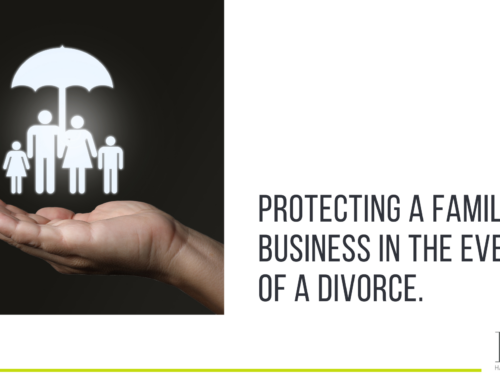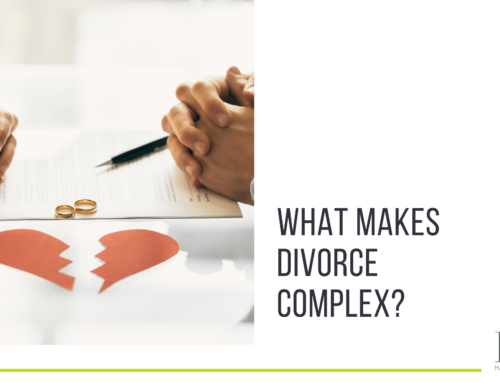Divorce can be difficult no matter the circumstances but when you run a family business together, there are even more complications. It’s important to consider what are the best options for you and your family business if your marriage comes to an end.
There are many compelling reasons for seeking legal advice early when couples make the decision to divorce and this is particularly true when business interests are involved.
Find common ground
It may be possible, with support from a specialist family law solicitor, to reach an amicable resolution covering how the business relationship will be resolved. Where possible and with careful negotiation, this is often the best way forward. We prefer, where possible, to agree a settlement out of court because judge have a wide range of discretion and the outcome can be unpredictable. It is far better to have a negotiated settlement which both parties know will work for them. In some cases, ex couples decide to continue to run the family business together and are able to maintain a good working relationship. This is not always possible, of course, and there are other options when deciding on the future of the business.
Split the assets
Without previous legal documents such as a pre-nup, the starting point in divorce proceedings is to look at whether an equal split of assets is fair. An equal split is not inevitable though. We will always discuss your individual circumstances with you to try and achieve the best possible outcome. If one partner has had a more active role in the business, this can lead to further issues. The courts may not, for example, grant a bigger share because you were the person who established or spent more time building up the business. Any agreements that have been previously drawn up specifying who owns what shares and documenting loans, for example, could play an important part in any negotiations or proceedings.
Buy out
If the family business is to be split, one option might be to buy out your ex partner’s share. One partner may retain ownership and pay the other spousal maintenance, or borrowings could be used to make a lump sum payment. There are lots of pitfalls to avoid and we would urge you to get expert legal advice from us so that we can guide you through the process.
We would always advise, if you co-own a business with your spouse, to have precise legal documentation drawn up so that in the event of a divorce it is easier to achieve a fair settlement that reflects the contribution both partners have made.
To speak to one of our friendly divorce solicitors for a confidential chat give us a call today on 01423 594680.

Emma Doughty is family lawyer who provides straightforward, easy to understand advice. She is passionate about helping people and using her expertise to achieve the best outcome possible. She has been described by her clients as “tremendous and incredibly supportive”.
Everyone’s circumstances are different and this article is provided by way of general information only and must not be relied upon. If you require legal advice on a family law issue, please feel free to contact us by emailing enquiries@harrogatefamilylaw.co.uk.






